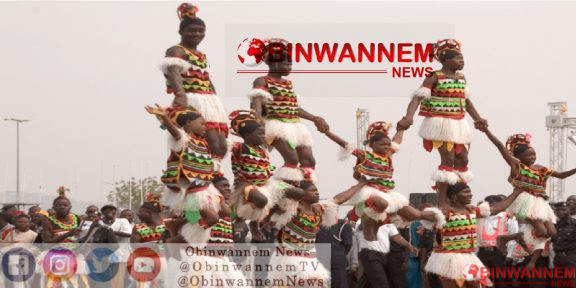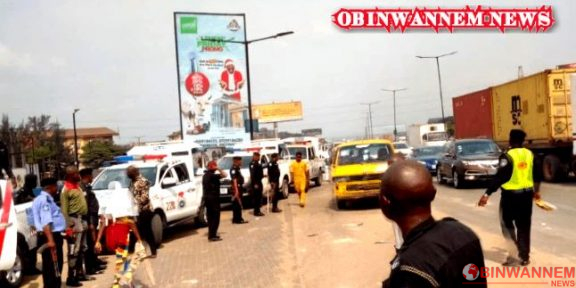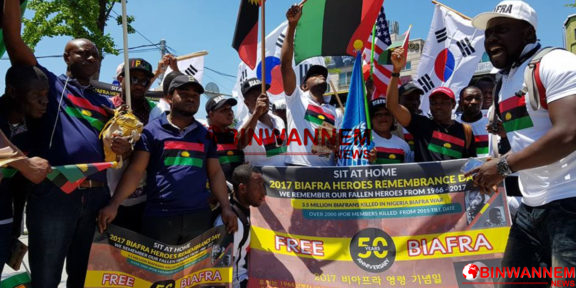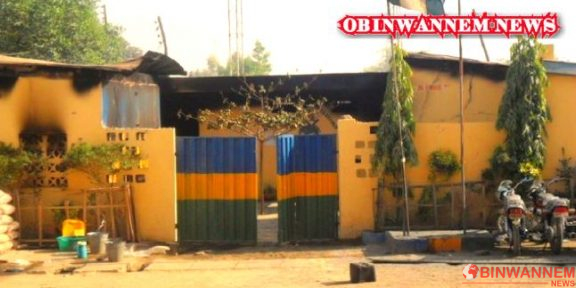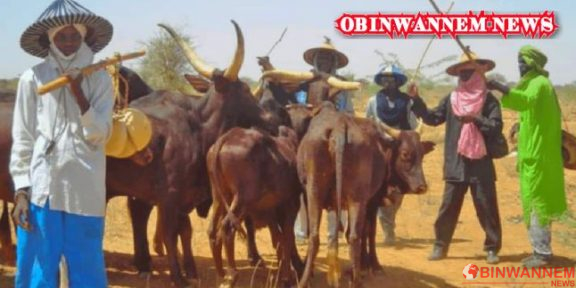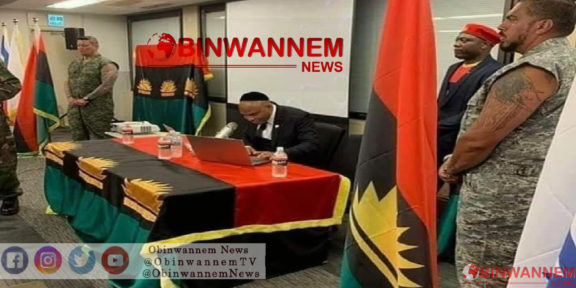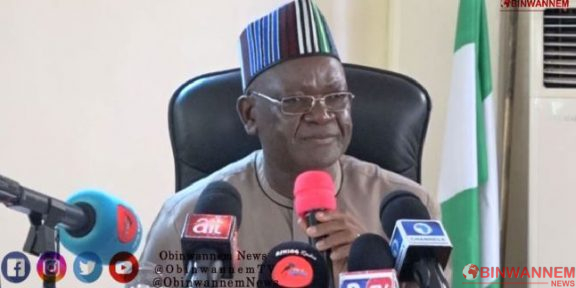The Anioma-British War, popularly referred to in history as Ekumeku or Ekwumekwu in some Anioma quarters, occurred between 1883 and 1914 and involved Anioma and the British. The Anioma are mostly Igbo; therefore, all Anioma speak Igbo beyond the enclaves of non-Igbo ancestry in the Anioma region. It is therefore easier to recognize that Ekwumekwu is an Igbo word. However, different sources have interpreted “Ekumeku” differently.
Some believe it means “Do not talk about it”,” while others argue it means “Not to be spoken about.” Regardless of the interpretation, the Ekumeku movement was a significant and bloody resistance against British colonial rule in the Anioma region. The war lasted for over 30 years and ultimately ended in defeat for the Anioma people, but it remains a symbol of their fierce determination and resilience in the face of adversity.
“Aya Ekumeku” is the native term for the war of Ekumeku in the historical context of the Anioma. In Igbo, the word “war” is represented by the word “Aya,” and “Do not talk about it” or “Not to be spoken about” is represented by the Igbo onomatopoeia, Ekwumekwu. This is a representation of the Ekumeku movement’s secrecy.
The term “Ekumeku” may have been justified because of the extraordinarily swift, deadly, and covert tactics used in the battle together with the initiation requirement required for recruiting soldiers. It was frowned upon during the Ekumeku conflict to discuss the cult’s beginnings, operational bases, mobility, and sources of secrecy. More so, the Ekumeku movement was shrouded in mystery and intrigue, with members sworn to secrecy about its origins and activities.
This level of confidentiality was necessary to protect the group’s tactics and ensure its survival in the face of powerful enemies. The Ekumeku’s ability to strike quickly and decisively was a key factor in their success against larger, better-equipped forces. The strict initiation process for recruits also helped to maintain the group’s cohesion and effectiveness in battle.
In western Igboland, there was a great deal of resistance to the British, who had a significant economic interest in the area. Ekumeku, with their well-organized chiefs, joined forces in oath-taking secrecy to thwart British interests in the area. The most effective instrument for doing this was guerrilla warfare.
The Ekumeku rose to prominence as the epitome of Igbo nationalism, inspiring fear and discipline in the British government on how and when not to interact with the Igbo people in general. Other Igbo regions borrowed the bravery to face the British from Ekumeku. Perhaps, no area in Southern Nigeria had people who rose in such a fierce and coordinated manner to oppose British imperial occupation as the Anioma region, where the conflict raged for 16 years and claimed a high toll on both sides.
The Ekwumekwu conflict was started by British attempts in the 19th and 20th centuries to enforce hegemonic and imperialistic policies aimed at subjugating the Anioma people for their economic benefit. The British chose to use force to subdue the Aniomas because they saw the socioeconomic activities of the British in the Anioma territory as an intrusion that needed to be opposed at all costs. In the Anioma society, this started to pose a threat. Anioma historians
contend that although Britain, with its experiences from other regions of the nation, was well-prepared for the outcome, the Anioma were ill-prepared and merely ready to protect their area from British economic encroachment. Because of this, the British had the advantage over their Anioma counterparts. The remaining Anioma towns did not start preparing for the British until close to the end of the war.
Before 1898, the Anioma nation had engaged in violent clashes with the British, resulting in the identification of the Anioma region as difficult terrain, and the British believed that the area needed to be purged if they were to derive economic gains from the region and have an impact on the people’s social activities. Interestingly, the British had already identified the region’s leaders as violent due to their negative interactions with the populace.
In 1830, the Lander Brothers reported their terrible encounters with the Anioma back home, when they were apprehended by the Anioma community, who could not understand why they were crossing through their area. It was an earthquake that landed the Anioma in the blacklist of Britain, ready to burst.
The conflict between Anioma and Britain had worsened by 1870, and that same year, the British invaded the Anioma village of Ndoni. Among other things, the British parliament had decided that the Ndoni people would have to be forced to comply with their economic demands. When Atani, another Anioma hamlet, joined the Royal Niger Company in 1880 to try and control the trade in the area, they would meet the same end.
With the help of its charter, the Royal Niger Company continued what learned scholar Joseph Egwu considered to be the first genocide against the Anioma people. Ultimately, on November 2, 1897, an Anioma settlement called Onicha-Ado (Onitsha) was bombarded, starting a protracted guerilla struggle between the Anioma rulers and the British.



